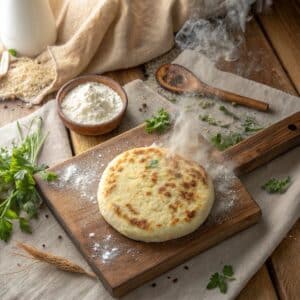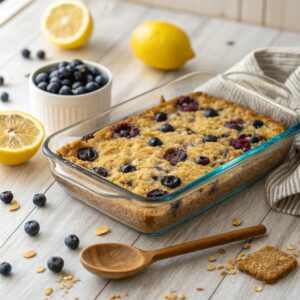Cottage cheese flatbread with flour is one of the simplest, most satisfying breads you can make at home. This easy, protein-rich flatbread recipe is made with just three core ingredients and comes together in under 30 minutes. Whether you’re making lunch wraps, pairing with soup, or serving it warm with butter, this cottage cheese flatbread with flour delivers every time. We’ll walk you through the story behind the recipe, essential ingredient tips, cooking methods, serving ideas, and answer the most common questions—so you can make perfect flatbread with cottage cheese and flour today.
My Story Behind This Cottage Cheese Flatbread with Flour
Learning to Love Simplicity in the Kitchen
Some of the best recipes come from happy accidents—and this cottage cheese flatbread with flour is one of them. One rainy Tuesday, I found myself with just a half-used tub of full-fat cottage cheese and some flour. I tossed them together with a pinch of salt and tossed the dough into a skillet. To my surprise, the flatbread puffed up perfectly and was soft, chewy, and flavorful. It reminded me of the warm breads my grandma made, only this time, it had a creamy twist from the cottage cheese.
Print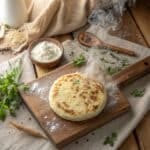
Cottage Cheese Flatbread with Flour – Simple, Soft, and Delicious
- Total Time: 20 minutes
- Yield: 4 flatbreads 1x
- Diet: Vegetarian
Description
This simple cottage cheese flatbread with flour is soft, fluffy, and packed with protein. Quick to make and easy to serve!
Ingredients
1 cup full-fat cottage cheese
1 cup self-raising flour (or all-purpose + 2 tsp baking powder)
1/2 tsp salt (any kind)
Instructions
1. In a bowl, combine flour, salt, and cottage cheese.
2. Mix until a dough forms—add extra flour if sticky.
3. Let dough rest for 5–10 minutes.
4. Divide into 4 pieces and roll each into 1/4-inch thick rounds.
5. Heat a non-stick or cast iron skillet over medium-high.
6. Cook each flatbread for 1–2 minutes per side until golden spots appear.
7. Cool on a rack and serve warm.
Notes
Use self-raising flour or substitute all-purpose flour with baking powder.
For extra flavor, mix in garlic powder or fresh herbs.
To store, wrap in parchment and keep in airtight container.
- Prep Time: 10 minutes
- Cook Time: 10 minutes
- Category: Bread
- Method: Pan-Fried
- Cuisine: American
Nutrition
- Serving Size: 1 flatbread
- Calories: 190
- Sugar: 1g
- Sodium: 320mg
- Fat: 7g
- Saturated Fat: 4g
- Unsaturated Fat: 2g
- Trans Fat: 0g
- Carbohydrates: 22g
- Fiber: 1g
- Protein: 9g
- Cholesterol: 15mg
Why Cottage Cheese and Flour Work So Well
The pairing of cottage cheese and flour might sound odd at first, but it works beautifully. The cottage cheese brings protein, tang, and moisture, while flour gives the flatbread structure. The result? A chewy, pillowy bread that toasts up golden brown in a skillet. You can use self-raising flour for a fluffier finish or all-purpose flour plus baking powder. Salt is essential—it sharpens the flavors and rounds out the creamy richness of the cheese. This flatbread with cottage cheese and flour has become a staple, especially when I need something quick, satisfying, and homemade.
Try this homemade tortilla or pair your flatbread with our favorite chicken soup for the perfect meal.
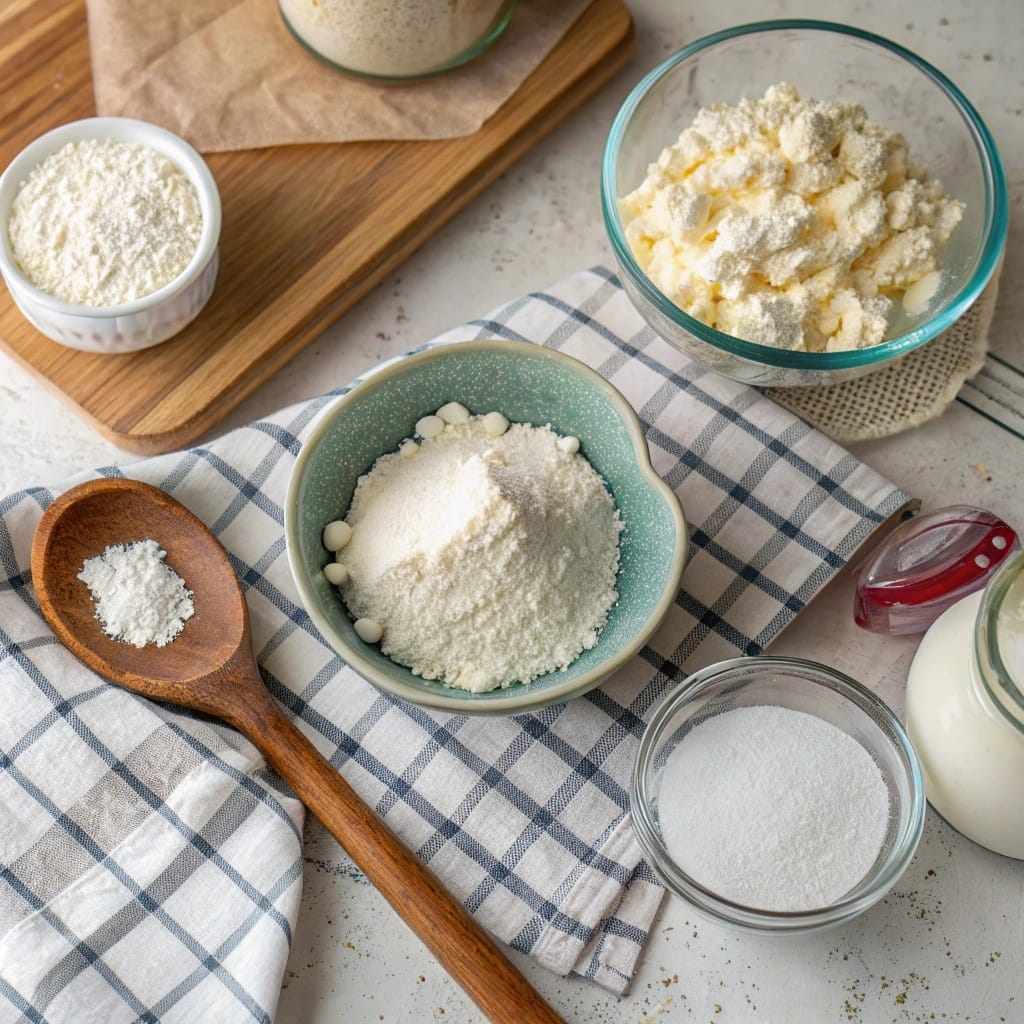
Table of Contents
Choosing the Right Ingredients for Cottage Cheese Flatbread
What You Need for Perfect Flatbread Every Time
For this cottage cheese flatbread with flour, you only need three main ingredients:
- Cottage Cheese – Full-fat is best for flavor and texture, but low-fat will still work.
- Flour – Use self-raising flour for soft, fluffy bread. If using all-purpose flour, add 2 tsp of baking powder per cup.
- Salt – Pink Himalayan salt adds trace minerals, but regular table or sea salt works perfectly too.
These ingredients combine into a dough that cooks into golden flatbreads with just the right chew and softness. The balance of moisture from the cottage cheese and the lift from the flour makes this recipe easy and forgiving.
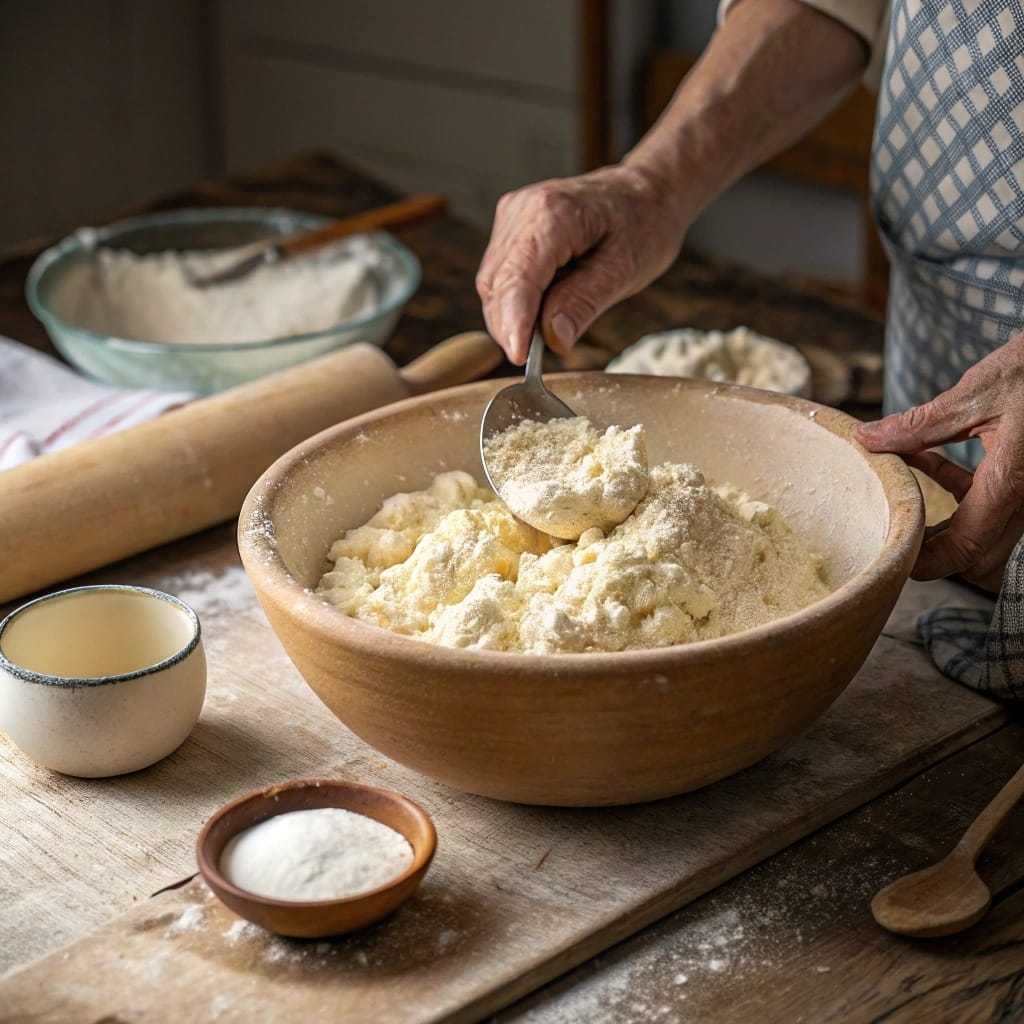
Optional Add-Ins and Creative Twists
Once you’ve mastered the base, try experimenting. Add garlic powder, fresh herbs like chives or parsley, or a handful of shredded cheese for more flavor. A pinch of cumin or smoked paprika can give the flatbread a unique spin.
Make sure the dough is slightly tacky but not sticky. Over-kneading can make it dense, while under-mixing leaves it crumbly. A 10-minute rest helps the gluten relax for better roll-out and frying.
Serve it with cucumber yogurt dip or dip it into hearty lentil stew for a comforting combo.
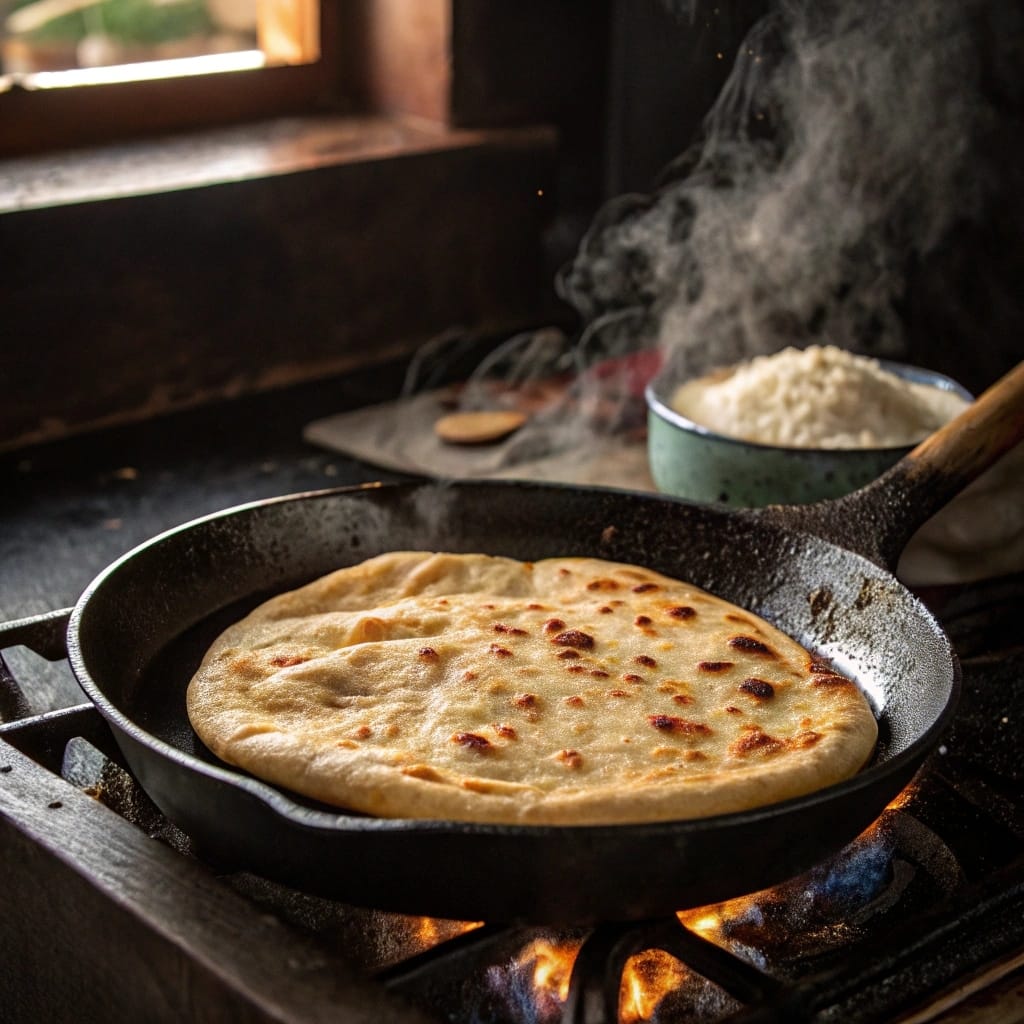
Cooking Cottage Cheese Flatbread Without Falling Apart
Common Flatbread Mistakes and How to Avoid Them
If your cottage cheese flatbread with flour is tearing or won’t hold its shape, your dough may be too dry. Cottage cheese varies in moisture content. Start with a soft dough and add flour only as needed. If it’s sticking too much, add extra flour one tablespoon at a time. Letting the dough rest before rolling makes it more flexible and easier to shape.
Use a medium-high heat and a non-stick or cast iron skillet. Too cold and it won’t cook through; too hot and it burns. Wait for bubbles and golden spots before flipping. If your flatbread with cottage cheese and flour still breaks, try making slightly thicker rounds next time.
Tips for Perfect Texture and Flip Timing
Roll the dough to about 1/4 inch. Thin dough may tear; thick dough stays doughy inside. Once bubbles form and the underside browns, flip carefully. Overhandling it early on is a common mistake. Let the skillet do the work.
Cooling your cottage cheese flatbread with flour on a wire rack helps prevent sogginess. Avoid stacking them hot. Keep them warm with a tea towel instead.
Serve with village chicken curry or fill with mashed chickpea salad for a quick lunch.
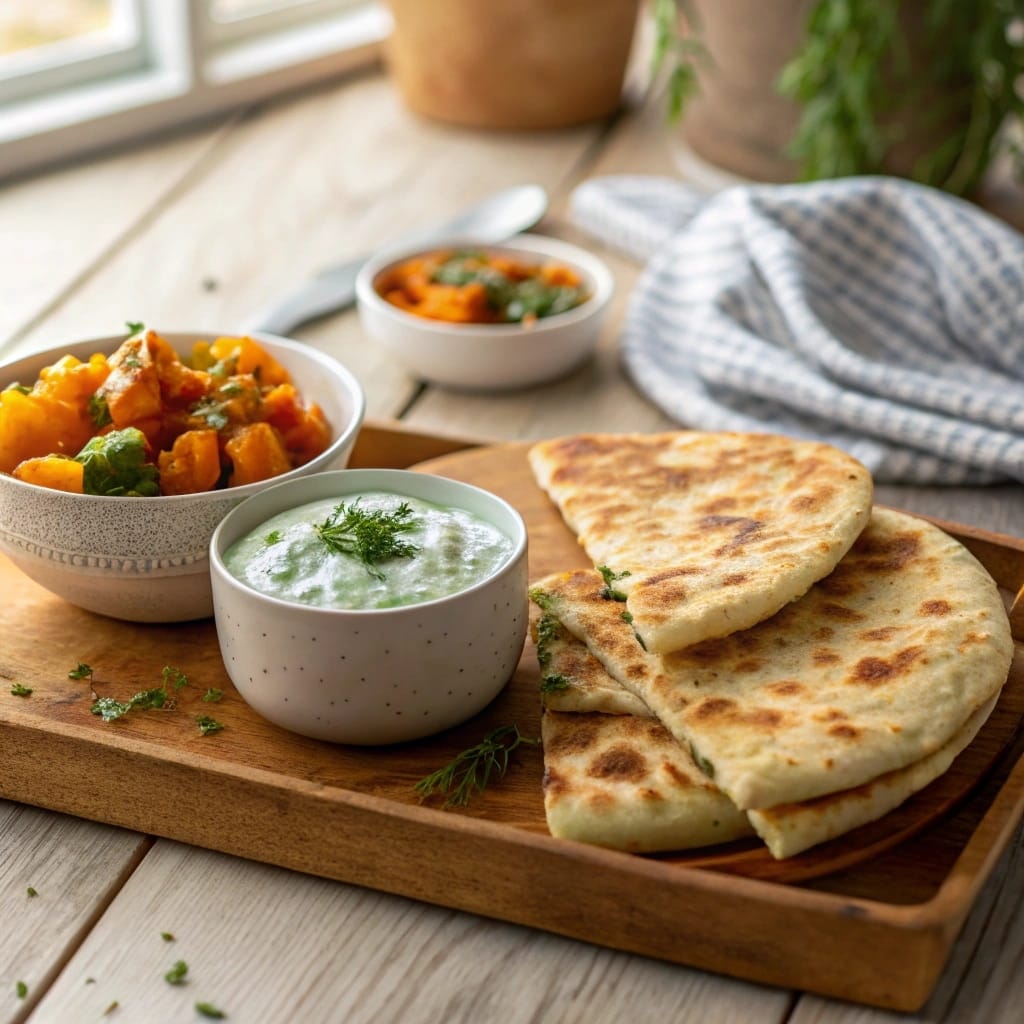
Easy Serving Ideas & Storage Tips for Cottage Cheese Flatbrea
Ways to Serve This Simple Flatbread
This cottage cheese flatbread with flour is endlessly versatile. Serve it warm with butter or ghee, roll it up with hummus and veggies, or turn it into mini pizzas. For breakfast, try topping it with eggs and avocado. For dinner, serve alongside soups or stews.
The slightly chewy, rich texture makes it ideal for scooping dips, wrapping grilled meats, or enjoying plain. You can even cut leftover flatbread into wedges, toast them, and turn them into homemade chips.
Looking for comfort food? Enjoy it with creamy pumpkin soup or mop up sauce from our slow beef stew.
How to Store and Reheat for Best Results
Let your cottage cheese flatbread with flour cool completely before storing. Wrap each in parchment and keep in an airtight container. They’ll stay soft at room temp for 2–3 days or refrigerated for up to 5 days.
To freeze, stack with parchment between each piece and place in a zip-top freezer bag. Reheat on a dry skillet or microwave for 10–15 seconds with a damp paper towel. Don’t oven-bake unless you want them crisp.
Conclusion
This cottage cheese flatbread with flour is the kind of recipe you’ll keep coming back to—simple, reliable, and endlessly adaptable. Whether you’re rolling it out for a quick lunch wrap, pairing it with hearty stews, or crisping it up into flatbread chips, it always hits the mark. Made with just a few ingredients and ready in minutes, it’s perfect for busy weeknights, lazy weekends, or any time you need warm bread fast. From my Texas kitchen to yours, happy cooking—and don’t forget the salt!
for more recipes follow me in facebook in pinterest.
Frequently Asked Questions
Can you make flatbread with cottage cheese and flour?
Yes, cottage cheese and flour make an excellent combination for soft, chewy flatbread. The cottage cheese adds moisture, protein, and a mild tang, while flour gives structure. Use self-raising flour or add baking powder to all-purpose flour for the best rise and texture.
Why does my cottage cheese flatbread fall apart?
Flatbread usually falls apart if the dough is too dry or wasn’t kneaded enough to bind properly. Ensure the dough is moist but not sticky, and let it rest briefly before cooking. Also, use a hot, non-stick skillet and avoid flipping too early.
What do cottage cheese and flour make?
Together, cottage cheese and flour create a tender dough that’s ideal for making flatbread. The result is a protein-rich bread with a slightly creamy texture that cooks beautifully in a pan. This combo is also used in dumplings and high-protein wraps.
Can flatbread be made with plain flour?
Absolutely! Plain (all-purpose) flour works well for flatbread. Just add 2 teaspoons of baking powder per cup of flour to create the rise you’d get from self-raising flour. This ensures your flatbread isn’t dense or tough.

